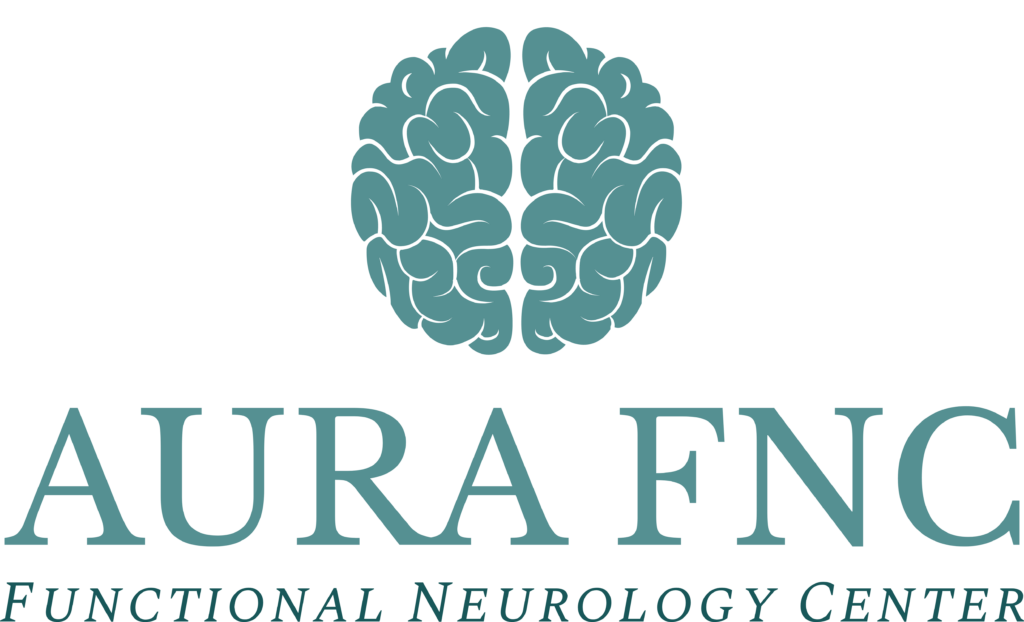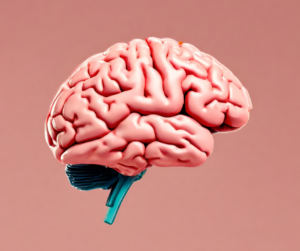Did you know that you can get a migraine from not eating due to low blood sugar (hypoglycemia)? You’ll have a better understanding of why after reading from Dr. Diana Tyler.

Dr. Diana Tyler DC, DACNB
Founder of Aura Functional Neurology Center. Board Certified Chiropractic Neurologist and migraine specialist. Graduate of Palmer College of Chiropractic and Diplomate of the American Chiropractic Neurology Board.
Did you know that you can get a migraine from not eating due to low blood sugar (hypoglycemia)? You’ll have a better understanding of why after reading.
Table of Contents:
- Think Fast Before Fasting
- Blood Sugar Levels and Migraines
- Identifying and Avoiding Migraine Food Triggers
- How Does Skipping a Meal Affect My Brain and Body?
- Explaining Why Not Eating Can Trigger Migraines
- What is a Migraine Trigger?
- Blood Sugar Levels
- Feed Your Head
Think Fast Before Fasting
Fasting has gained popularity as a method to improve overall health and promote weight loss. While it may have proven benefits for some individuals, it is essential to consider potential negative effects on those who suffer from certain neurological conditions, such as migraine. However, when it comes to migraine with aura, studies have shown that: “fasting may trigger migraine headache with or without aura (Dalkara T., et al., 2013)”.
References:
Dalkara T, Kiliç K. How does fasting trigger migraine? A hypothesis. Curr Pain Headache Rep. 2013 Oct;17(10):368. doi 10.1007/s11916-013-0368-1. PMID: 23996724.https://pubmed.ncbi.nlm.nih.gov/23996724/
Nutrients are essential
Migraines are severe headaches that can be debilitating, often accompanied by common migraine symptoms like nausea, sensitivity to light and sound, and pulsating head pain. To understand the connection between fasting and migraine disease, it is crucial to examine how blood sugar levels and food triggers can impact the occurrence and severity of migraines. Ensuring a consistent and healthy intake of nutrients is essential for those predisposed to migraine attacks to maintain stable blood sugar levels and avoid triggering painful headaches.
Blood Sugar Levels and Migraines
Maintaining stable blood sugar levels is crucial for migraine sufferers, as you can get a migraine from not eating. A drop in blood sugar can act as a trigger for migraine disease in certain individuals. When blood sugar levels plummet due to a lack of food, it can lead to headaches known as hunger headaches or hunger pangs. These headaches are typically caused by the brain’s response to a decrease in available glucose, which is the primary fuel source for brain function. Consequently, low blood sugar can cause blood vessels in the brain to constrict, resulting in head pain and migraines.
Identifying and Avoiding Migraine Food Triggers
In addition to drops in blood sugar levels causing migraine from not eating, certain foods can act as triggers for migraines. By understanding and avoiding these food triggers, individuals can reduce the occurrence and severity of migraine attacks. Common food triggers include artificial sweeteners, caffeine, alcohol, aged cheeses, processed meats, and foods containing monosodium glutamate (MSG). Restrictive diets, inconsistent eating patterns, and consuming unhealthy foods are also known to increase the likelihood of migraines.
Hydration and regular meals are important
Proper hydration is crucial for overall health and can also play a role in preventing migraines. Dehydration can lead to headaches, including migraines, due to its impact on blood pressure and blood flow. Migraine sufferers should ensure they are drinking plenty of water throughout the day, striving for at least eight glasses of water daily. Additionally, maintaining regular meals is important to avoid drops in blood sugar and prevent hunger headaches. Skipping meals or prolonging periods between meals can trigger migraines in susceptible individuals. By incorporating healthy snacks between meals, migraine sufferers can maintain stable blood sugar levels and avoid triggering headache symptoms.
How Does Skipping a Meal Affect My Brain and Body?
Low blood sugar triggers a series of reactions in the body. The brain, which relies on glucose as a primary fuel source, detects the decrease in available glucose and initiates a response. The symptoms commonly include dull pain, lightheadedness, a feeling of tension in the head and neck area, and dizziness or pre-syncope. Hunger headaches can also activate a migraine attack, causing further discomfort and a range of migraine-like symptoms such as nausea, sensitivity to light and sound, ringing in the ears, and pulsating head pain.
Skipping meals or periods without eating can also impact higher brain function. When the brain lacks a consistent energy source, it can affect cognitive function, concentration, and overall well-being.
Explaining Why Not Eating Can Trigger Migraines
Skipping meals or going long periods without eating can have a significant impact on our overall health, especially for individuals prone to migraines. This is because migraine is considered to be a metabolic disease of the brain, and fluctuations in blood sugar levels can trigger a migraine. Therefore, it is crucial to maintain consistent meals with healthy snacks to keep blood sugar levels stable and avoid triggering migraine symptoms.
Understanding the importance of a balanced diet
Ways to regulate blood sugar daily include eating three balanced meals of macronutrient rations, avoiding high-sugar snacks and drinks, and incorporating healthy snacks between meals. A well-balanced diet should include plenty of fruits, vegetables, lean proteins, complex carbohydrates, and healthy fats. Avoiding unhealthy processed foods and limiting caffeine and alcohol intake.
Starting the morning with a high-fat and protein meal instead of a typical breakfast of high-carbohydrate meals like waffles and pancakes can help regulate blood sugar levels throughout the day. Individuals should also be mindful of their hydration levels, drinking a healthy amount of water throughout the day to avoid dehydration-related headaches.
Power up with protein to prevent hunger headaches
In addition to maintaining stable blood sugar levels, incorporating protein-rich foods into your diet can be especially beneficial in preventing hunger headaches. Protein is an essential nutrient that provides a slow and sustained release of energy, keeping you feeling full and satisfied for longer periods. This can help prevent those dreaded hunger pangs that can trigger migraines.
When choosing protein-rich foods, avoid migraine triggers
Lean meats like chicken and turkey, fish, and eggs are excellent choices. However, it’s important to note that certain types of cheese, especially aged cheeses, can be potential migraine triggers for some individuals. It’s best to consult with a healthcare professional or a registered dietitian to determine your specific food triggers.
To prevent hunger headaches, incorporate a variety of protein-rich foods into your diet and spread your intake throughout the day. Aim for an appropriate balance of protein, carbohydrates, and healthy fats in each meal. By prioritizing protein and maintaining stable blood sugar levels, you can power up your body and keep those hunger headaches at bay.
What is a Migraine Trigger?
A migraine trigger refers to any factor that can initiate or worsen a migraine attack. One significant trigger is not eating regularly or skipping meals, known as a migraine from not eating. When we don’t consume food for extended periods, our blood sugar levels drop, leading to a headache attack. Irregular meal times, such as frequently skipping breakfast or eating inconsistently, can also contribute to migraine attacks.
Apart from not eating regularly, there are other common migraine triggers to consider. Chronic stress and tiredness, starting the menstrual period, and excessive caffeine consumption can all initiate a migraine attack due to a decreased threshold within the central nervous system. Identifying and avoiding these triggers can significantly help in preventing migraine attacks until you can address the root cause.
Blood Sugar Levels
Also known as blood glucose, it refers to the amount of sugar (glucose) present in our bloodstream. This sugar serves as the primary energy source for our brain, as well as other metabolic processes throughout our body. Interestingly studies have shown: “increasing evidence suggests that migraine may be the result of an impaired brain glucose metabolism (Del Moro L., et al., 2022)”.
References:
Del Moro L, Rota E, Pirovano E, Rainero I. Migraine, Brain Glucose Metabolism and the “Neuroenergetic” Hypothesis: A Scoping Review. J Pain. 2022 Aug;23(8):1294-1317. doi: 10.1016/j.jpain.2022.02.006. Epub 2022 Mar 14. PMID: 35296423. https://pubmed.ncbi.nlm.nih.gov/35296423/
Maintaining stable blood sugar levels is essential for optimal brain function, as any fluctuations can have a significant impact on our mood, energy levels, and cognitive abilities. When our blood sugar levels drop too low, it can lead to a variety of symptoms, including headaches, dizziness, irritability, and difficulty concentrating.
The connection between low blood sugar and migraines:
Research has shown a correlation between low blood sugar levels and migraine headaches. This is why: “Fasting is one of the most well-known and frequently reported migraine triggers with a percentage range from 39% to 66% (Islam MR., et al. 2022).”
References:
Islam MR, Nyholt DR. Glucose-Related Traits and Risk of Migraine-A Potential Mechanism and Treatment Consideration. Genes (Basel). 2022 Apr 22;13(5):730. doi 10.3390/genes13050730. PMID: 35627115; PMCID: PMC9141901. PMC9141901.https://www.ncbi.nlm.nih.gov/pmc/articles/PMC9141901/
Additionally, the brain may release substances that trigger migraines, such as neuropeptides. Therefore, keeping blood sugar levels stable is essential to prevent these severe headaches.
Feed Your Head
Our brains are incredible organs that require a constant and steady supply of fuel to function properly, especially in those with migraine disease. Just like any other part of our body, the brain relies on dietary sources to sustain its energy needs. When we neglect our nutritional needs, it can have various effects on our brain, including the potential for migraines from skipping meals. In this article, we will explore the importance of feeding our heads with the right nutrients and how it can help prevent migraine attacks.
What our brain needs
The brain is a high-energy organ that uses glucose as its primary source of fuel. Glucose: ” provides the fuel for physiological brain function through the generation of ATP, the foundation for neuronal and non-neuronal cellular maintenance, as well as the generation of neurotransmitters (Mergenthaler P., et al., 2013).
References:
Mergenthaler P, Lindauer U, Dienel GA, Meisel A. Sugar for the brain: the role of glucose in physiological and pathological brain function. Trends Neurosci. 2013 Oct;36(10):587-97. doi: 10.1016/j.tins.2013.07.001. Epub 2013 Aug 20. PMID: 23968694; PMCID: PMC3900881.https://www.ncbi.nlm.nih.gov/pmc/articles/PMC3900881/
When we don’t eat regularly or opt for unhealthy food choices, our blood sugar levels can drop, depriving the brain of the glucose it needs to perform optimally. This drop in blood sugar can trigger a cascade of events, including the constriction of blood vessels in the brain, which can lead to migraines. Feeding our heads with a balanced and nutritious diet is vital for maintaining stable blood sugar levels and preventing migraines. By understanding the connection between our dietary choices and the health of our brain, we can take proactive steps to ensure we provide our brains with the energy it needs to function optimally, reducing the occurrence of debilitating headaches. We hope that this article helped to explain why you can get a migraine from not eating.
Talk to your doctor
If you experience hunger headaches or suspect that your migraines are triggered by not eating, it’s important to consult with a healthcare provider. While incorporating protein-rich foods into your diet can help prevent hunger headaches, it’s essential to discuss your symptoms and concerns with a medical professional.
It’s important to note that sudden, severe headaches should never be ignored. If you experience a sudden onset of severe head pain and it is accompanied by symptoms such as confusion, dizziness, slurred speech, or vision loss, it is essential to seek immediate medical care. These symptoms could be indicative of a more serious underlying condition that needs to be addressed promptly.
Remember, discussing your symptoms and concerns with a healthcare provider is the best way to ensure an accurate diagnosis and appropriate treatment plan for your hunger headaches or migraines triggered from not eating.







